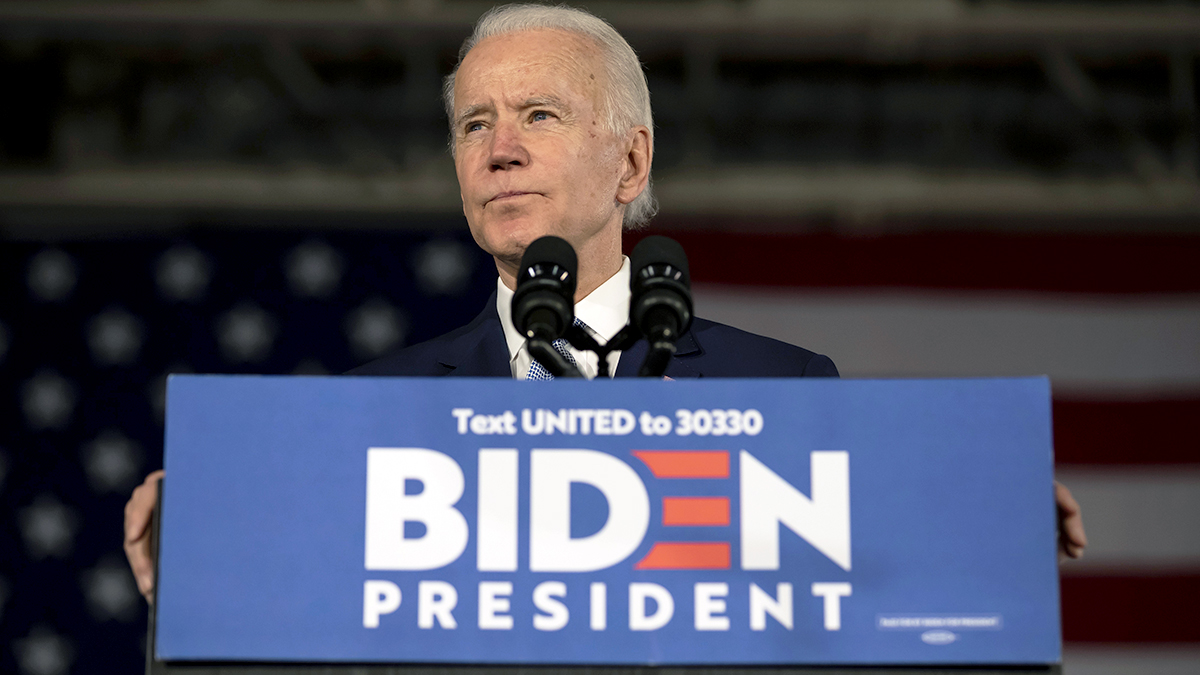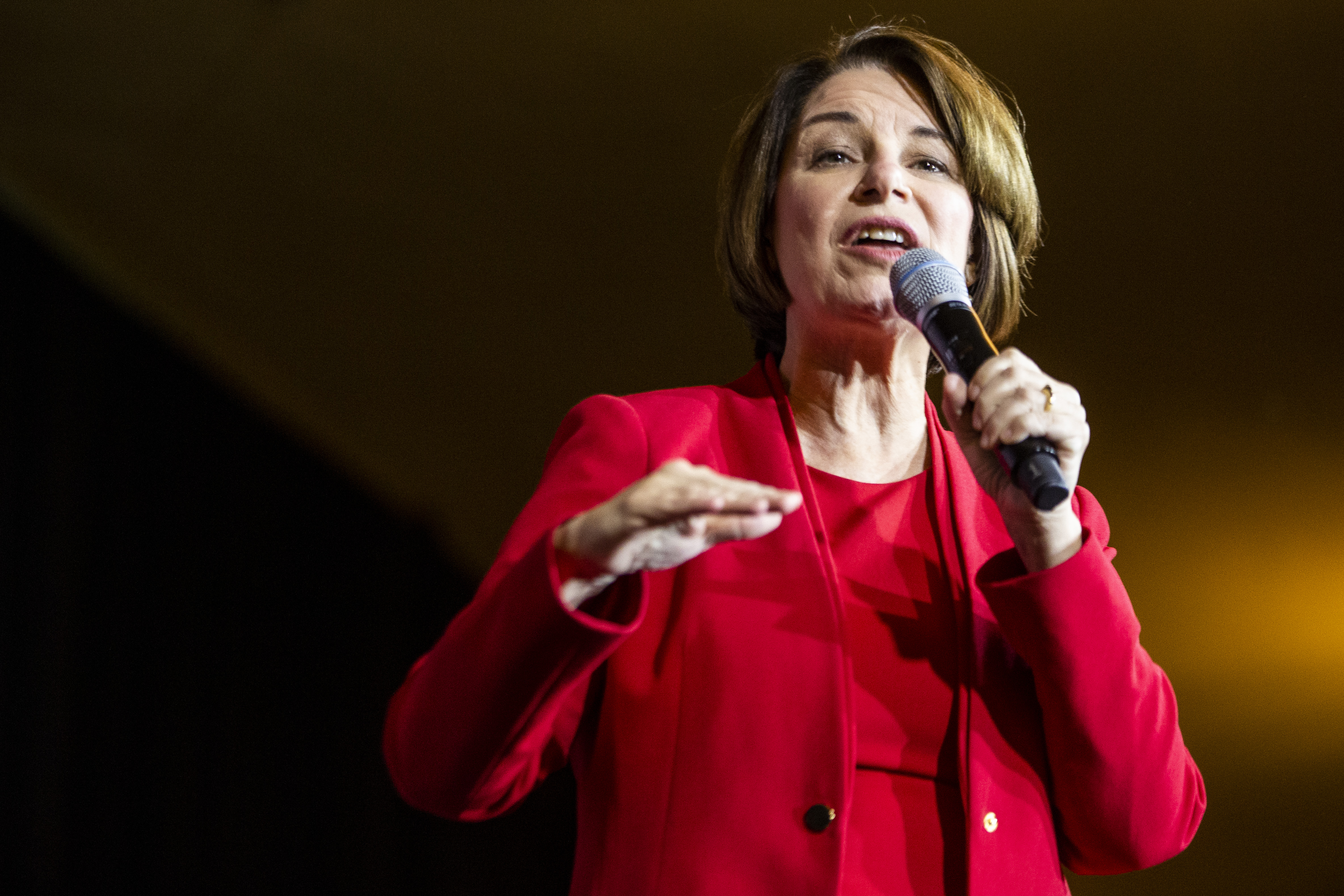Democratic presidential candidate Mike Bloomberg will reassess on Wednesday whether he should stay in the race after getting disappointing results in Super Tuesday primaries despite spending more than a half billion dollars on his campaign.
A person close to the Bloomberg campaign confirmed the deliberations. The person wasn't authorized to discuss the matter by name and requested anonymity.
Bloomberg, a billionaire businessman and former New York mayor, spent sums never before seen in political campaign history since entering the race in November. Millions of dollars went toward states like Virginia, North Carolina and Tennessee — all three of which former Vice President Joe Biden won handily on Tuesday, riding a wave after his decisive victory in South Carolina.
Bloomberg's poor showing was a rejection by voters of the central rationale of his campaign: He was the candidate best poised to take on Republican President Donald Trump. And it was proof that, in politics, money can’t solve every problem. Bloomberg, one of the world's wealthiest men, has a $61 billion net worth that flows from the financial data and media company he founded in the 1980s, Bloomberg LP.
Get Southern California news, weather forecasts and entertainment stories to your inbox. Sign up for NBC LA newsletters.
Decision 2020
"When you come in late to the game and you are someone who has a record, you can’t assume you can just wash that away with spending. You’re still gonna have to answer questions and you’re still gonna have to be vetted," said Karen Finney, a Democratic strategist and former Hillary Clinton aide.
Bloomberg had aimed to take advantage of a weak and divided field of moderate candidates and collect enough delegates out of the day to emerge as the moderate alternative to Sanders. But Biden was boosted by Amy Klobuchar's and Pete Buttigieg's decisions to exit the race and endorse him.
The AP has allocated some delegates to Bloomberg from the territory of American Samoa, Texas, North Carolina, Tennessee, Colorado, Alabama and Oklahoma.
Kevin Sheekey, Bloomberg's campaign manager, said the campaign's "number one priority remains defeating Donald Trump in November."
There were signs Bloomberg wants to to stay in the race. He has already announced campaign stops in Michigan, Pennsylvania and Florida on Thursday, Friday and Saturday. He's spent tens of millions of dollars in states that don't vote until later in March or April, and bought new advertising time on Tuesday night, according to the ad tracking firm Advertising Analytics.
Bloomberg has committed to keep campaign offices open and spend through the general election, even if he's not the Democratic nominee.
In California, the largest delegate prize in the primary contest and a state where Bloomberg spent at least $57 million on TV ads, running them in every market over the 10 days leading up to the election.
The mood was buoyant at Bloomberg’s Tuesday night rally in Palm Beach, before many of the results had rolled in. A crowd of about 500 people snacked on mini hamburgers and cheesecakes and drank wine from an open bar as music blared from the speakers. And they gave a huge cheer when the networks called American Samoa for Bloomberg — his only win of the night.
Bloomberg himself spoke before most of the races had been decided, and preemptively dismissed the outcome.
“No matter how many delegates we win tonight, we have done something no one thought was possible: In just three months, we’ve gone from 1 percent in the polls to being a contender for the Democratic nomination for president,” he said.
Indeed, Bloomberg's money allowed him to campaign in the Super Tuesday states in ways his opponents could only dream of. He was the only candidate on air in all 14 states, and had staff on the ground in every state, including some teams that campaign leadership said were bigger than any campaign had built for a prior election.
According to TV ad spending data obtained by The Associated Press, Bloomberg dropped nearly $180 million on television advertising in those states as of this past weekend. More than $100 million went into Texas and California, the race's two largest delegate troves, coming out to roughly $3 per voter.
In San Diego, some Democrats have even turned Bloomberg’s name into a verb to describe one Democratic candidate’s massive spending in the local congressional race, saying she’s "Bloomberged" the race. A TV viewer there could have seen a Bloomberg ad as many as 40 times in the 10 days leading up to the election. Bloomberg hired more than 300 operatives in the state as part of a national staff of 2,400 people.
"It has to be somewhat humbling, not making any showing at all, especially given all he’s spent both on TV buys and on field organizing," said Jess Durfee, a Democratic National Committee member from San Diego who voted for Elizabeth Warren.
In states like Virginia and Alabama, Bloomberg’s massive ad spending did little to stop Biden from seizing victory. Bloomberg had spent more than $12 million in Virginia, with 99 delegates at stake, since entering the race. In Alabama, Bloomberg spent more than $6 million on television advertising, with more than $1 million in the 10 days leading up to the election.
He's also been spending tens of millions on digital advertising, all guided by a secretive digital firm called Hawkfish that Bloomberg himself founded last spring that provides the campaign with digital ad services, including "content creation, ad placement and analytics," according to a campaign spokesperson.
But the onslaught of ads seemed unable to make up for the damage inflicted by his opponents — and his own poor performance — during his first primary debate, in Las Vegas last month. There, nearly all his opponents hammered him over allegations he made sexist and crude comments to former employees and nondisclosure agreements that women who worked for his company had signed preventing them from speaking out. Sanders and Warren repeatedly accused Bloomberg of trying to buy the nomination.
Jaffe reported from Palm Beach, Florida.



